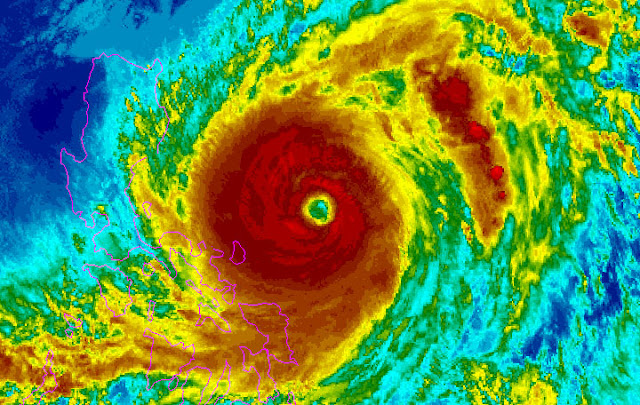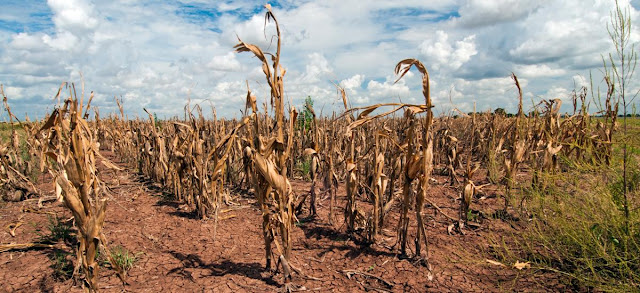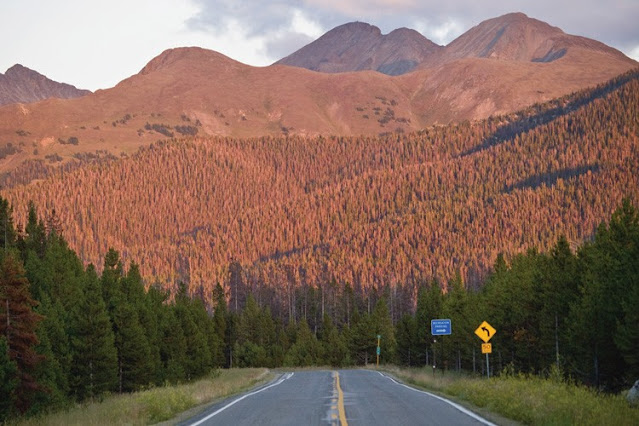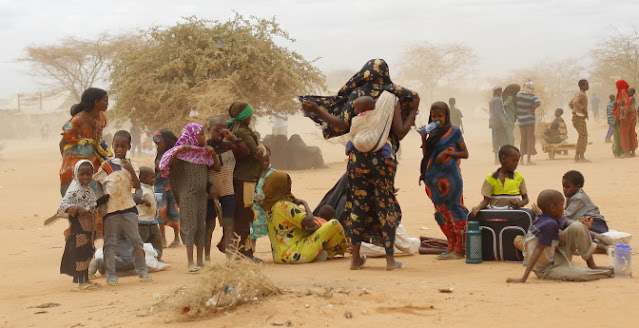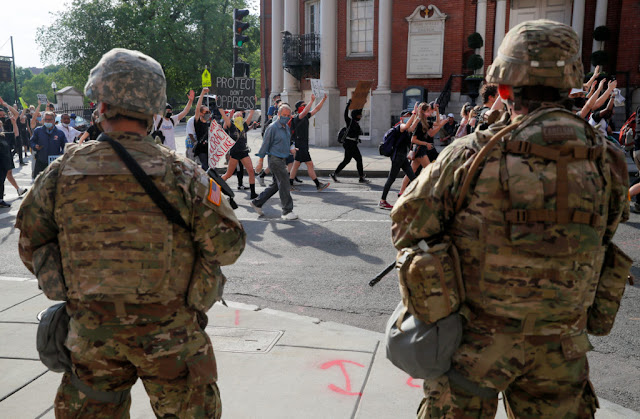The
U.S. spends nearly a trillion dollars a year on the military and related
expenses, but spends a tiny fraction of this amount on efforts to address the
climate crisis, even though the latter presents huge threats to our security.
“Security,” of course, means different things to different people and it seems
to us that it is high time we redefine this loaded term. Some think of “national
security” as a measure of military dominance. Others expand this to include
economic dominance and hegemony in terms of natural resources, or even cultural
hegemony. Within this paradigm, “security” means having power over others.
An alternative approach, one we embrace at Peaceworks, involves protecting the
health and safety of all people, and of the Earth we humans share with other
species. It also means attaining global security, moving to a more cooperative planetary
order where nations are not seeking to outdo or control each other, but rather
to live together in mutual respect.
There are numerous ways in which our security is threatened by climate change. Below
we touch on some of the ways in which the climate crisis is threatening
security, as it is broadly understood.
Storms: Climate change is making devastating storms
more powerful and more frequent. The incidence of extreme rainfall leading to highly
destructive flash floods has increased and we’ve seen this lead to increased
loss of life and limb, as well as hundreds of billions annually in property
damage.
Droughts & Other Extreme Weather
Events: While some areas are
seeing record-breaking downpours, much of the world, including much of the U.S.
West, is suffering from prolonged drought, along with unprecedented heat waves.
This threatens food supply. Drought also contributes to increased incidence of
fire, again costing life, limb and property.
Life Out of Balance: The increase in average temperatures and changes in the length of the growing season has thrown many natural systems out of balance. Forests are suffering from blights, animals are moving, but trees and other plants are not capable of movement, at least not in the timeframe that change is coming at us. The changing climate will also hasten the spread of many diseases, some of which today are present only in tropical regions.
Climate Refugees: As the world warms, it is doing so unevenly, with the greatest changes happening in polar and equatorial regions, with less change in the temperate zones. It is forecast that some areas—much of the Middle East for example—will become too hot to raise food, and eventually too hot for humans to live. Other densely populated, low lying areas—Bangladesh for example—will be inundated. This will lead to tens and even hundreds of millions of climate refugees.
We have already seen the national and racial chauvinism that has afflicted the U.S. and many countries in Europe some of which are already sealing their borders. When the dispossession occurs on a scale orders of magnitude greater than what we’re seeing today, it is hard to predict what will happen, but this clearly plays into the hands of fascistic elements.
Threats with Direct Military Implications: We view the litany of impacts above as security threats. For those who see security in more limited terms, there are additional ways in which climate change is a security threat. First and foremost, climate change is likely to disrupt our lives in ways that will provoke conflict within our communities. With resources—including food and potable water—stretched, there is likely to be chaos in our crowded cities. Extreme heat waves may bring down the electric grid, leaving millions without refrigeration, air conditioning or even fans.
It is likely that the military and the National Guard will be activated to impose martial law. The internal movement of millions of people, responding to famine has the potential of leading to conflicts in rural areas as well. The military will be hard pressed to bring order internally while simultaneously fulfilling its mission of defending the country from foreign threats.
While the breakdown of order is likely to be significant in affluent, temperate countries including the U.S., it will likely be far greater in the less affluent developing countries. It has often been said that our 20th Century resource wars were over oil, but our 21st Century wars are likely to be fought over water. Climate change is a driving force in water scarcity, and it seems highly likely that there will be battles fought over water, food, arable land and other limited resources. What role the U.S. will play in these is unclear, but it is likely that those who’ve supported the post-WWII U.S. role as global hegemon are likely to redouble their efforts to press for foreign alliances and interventions to preserve American Empire. This holds the potential for both ongoing, low-intensity warfare and proxy wars, as well as the possibility of war between major powers.
Climate change is already stressful and will only become more so in the coming decades. Stress tends to breed extremism, as people look for simple solutions to complex problems and cast the blame for their adversity on scapegoats. As we’ve seen in recent times, extremism can rapidly become violent extremism, and, in the process, present ever greater security challenges.
Another frightening scenario is the potential, in conflict or chaos, for nuclear weapons to fall into the hands of those who would use them. This could happen in any of the nine current nuclear weapons states, or in other nations that have nuclear ambitions that are being stoked by the unwillingness of the U.S. and other nuclear armed nations to abide by the Non-Proliferation Treaty and work to eliminate our nuclear arsenals. If growing chaos is among the impacts of climate change, there are many possibilities for doomsday and nuclear conflagration is not out of the question.
Finally, the direct impacts of a changing climate will likely make many military operations more difficult and costly. From rising sea levels impacting naval facilities, costing billions to renovate, to the challenges of operating in extreme conditions, the climate crisis will prove as challenging to the military as it does to other sectors of our economy.
If we aim to leave our progeny with a secure future, it is imperative that we recognize the degree to which climate change is, on so many levels, a game-changer. We are facing a climate emergency that warrants an effort comparable to the mobilization that the U.S. engaged in during World War II. We need to unite our population to respond to a threat that is greater than any we’ve faced in recent decades, perhaps ever. This should not be partisan. Responding to climate change should unite all of us, as we all want to leave our children, our grandkids and all who’ll come after them a livable, peaceful world; one that is truly secure.
